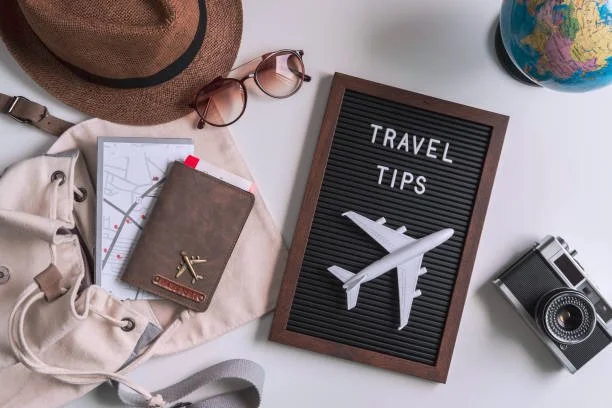Travel Planner Resources
When planning a tour experience, you have the unique opportunity to incorporate basic peacebuilding elements into traveler’s itineraries (i.e. Travel with CARE framework). Peace-building can be most successful when small items are planned and encouraged each day. Small concepts can evolve into larger results over time. So start with a series of smaller but important peacebuilding elements up front and have your tour director/guide reinforce them on tour. Below are some initial peacebuilding questions & suggestions that can be discussed as part of your pre-trip planning.
CARE questions to consider when planning a journey:
Curiosity - What does a traveler want from this journey? What’s something new to experience?
Acceptance - What are ways a traveler can be culturally aware and accepting when traveling?
Respect - What can a traveler do to be environmentally and culturally responsible?
Engagement - What does it mean to be a Global Citizen & how can they share this when they return?
Below are some CARE suggestions to include to “Make Peace Part of Every Traveler’s Journey”!
Pre-Trip
Curiosity Planning
-
When you plan a journey - You can choose to travel with a mindset of curiosity & connectivity.
1. Planning to travel with an open mind sets you up to take the first step in Peacebuilding. Embrace each destination, its people & culture with curiosity, respect & without judgement.
2. Study about the destination and what new things you will see. Understanding that the place you are visiting may be a tourist location to you, but it is also a place where many diverse people live, work & value.
3. Learn basic dos and don’ts for behavior, dress, and etiquette in the area you’re visiting.
4. Plan to meet and connect with others you meet about their lives, culture, and traditions. Celebrate differences and diversity. Ask questions.
5. If traveling to a foreign country, learn a few local phrases: Even simple greetings in the local language
(“Hello,” “Thank you,” “Please,” and “Excuse me.”)6. Commit to being a guest, not a critic. Speak with the mindset of learning and engaging, not judging.
7. Consider and acknowledge your own biases and assumptions. Avoid stereotyping people or places. Description text goes here
On Tour
Acceptance Commitment
-
1. Have an awareness of where you are and how you interact. Smile! Introduce yourself where applicable, ask questions thoughtfully
2. Slow down—listen, observe, connect. Actively seek common ground in conversations. Practice patience in delays or misunderstandings.
3. Disarm with kindness: Small acts—smiling, being patient, apologizing sincerely.
4. Be a connector: Encourage conversations between fellow travelers and locals. Facilitate mutual understanding.
5. Compliment sincerely: Say often and sincerely: “Thank you for sharing your hometown with us.”
6. Eat local, shop local, stay local: Choose family-run restaurants, markets, and shops over international chains.
7. Tip fairly (anything is better than nothing) and thank service workers with kindness.
8. Live as a guest, not a consumer: Walk softly, talk kindly, and move with reverence
On Tour
Respectful Stewardship
-
1. Carry a reusable water bottle, utensils, shopping bag, and other reusable items.
2. Request and stay in eco-conscious lodgings where applicable and use public transport, bike, or walk when possible.
3. Turn off lights, air conditioning, and electronics when not in use.
4. Eat a plant-based meal when you can—it’s better for the planet.
5. Avoid wildlife exploitation: don’t support attractions that exploit animals for entertainment.
6. Pick up litter when you see it—leave places cleaner than you found them.
7. Reduce your footprint: Conserve water, refuse single-use plastics, and leave places better than you found them.
On Tour -Post Trip
Engagement Challenge
-
1. Promote Peace through your positive presence
2. Reflect others’ dignity in your travel photos and social media.
3. Highlight human connection, not poverty.
4. Post positivity, like: “The people I met in [place] reminded me of how much we all want the same things—family, safety, joy”, “It’s a gift to be here—thank you for sharing your home with me.”
“I met someone in [country] who told me about their hopes for their community”, “There’s so much beauty in how people in [place] connect with nature/family/tradition.”5. Amplify voices: Share stories from your travels in ways that highlight the dignity and richness of other cultures.
6. Travel in Peace… and Pass it On to others!

Join Our Peace Through Tourism Community and Be 4-Peace
Every journey begins with a single step. Take your first step for peace today.





